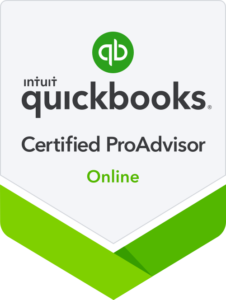
Let me start of by saying I am not a tax professional or CPA. Consult with your own tax professional as everyone’s situation is different.
Let’s go over the benefits of working as an Independent Contractor
- You can manage your time, so you can choose the days and hours that you want to work
- Shape your workload to focus on your strengths, rather than completing tasks because they are expected from your boss
- Unlimited income potential, especially when you are paid on a project basis instead of an hourly basis
- You are your own boss, so you don’t have to report to anyone about your activities each day
- Freedom to work anywhere
- The big one! Leverage tax breaks by writing off expenses that are related to running a business
Even though there are many benefits to self-employment, you will also experience a few disadvantages as well. For example, you don’t get employer-subsidized health insurance, paid time off, retirement matching, and other common employee benefits. Also, you will need to take on more tax and legal issues, but these things can be outsourced to a trusted team.
Bookkeeping Rules Independent Contractors
Whether you are already underway with your business efforts, or you are just getting started, there are a few bookkeeping rules that should be implemented into your financial system:
- Rule #1 – Separate Personal and Business Finances: Even though you are fronting the money to get the business off the ground, you need to be careful about the way the money flows through your company. Set up a separate checking account and use a dedicated credit card for your business expenses.
- Nerdwallet has put together a great list of free business checking accounts. I personally went with US Bank, make sure you move to paperless statements to ensure it’s a 100% free.
- Rule #2 – Track All Expenses: Whether you are buying a new computer system or a cheap notebook, you need to keep track of every expense related to running your business. These expenses can be used as tax deductions, but you must provide the documentation showing the transaction. Keep a digital record of transactions throughout the month, and hold onto the receipts and invoices that you receive.
- Don’t show up at tax time with a shoebox full of receipts. There are a number of free bookkeeping apps; however, finding support may be difficult and those apps may not fully integrate into other apps such as ADP (payroll), or Venmo and Zelle. Although you may be saving money upfront, being able to integrate data seamlessly will save you countless hours of data entry.
- A common misconception is that you need someone to maintain your books. That’s not always true, we can get you set up with Quickbooks and you can track your own expenses and customer invoicing. The reason I prefer Quickbooks is because they offer a myriad of platforms for all levels – from independent contractors to established businesses with hundreds of employees who need varying system roles & rights. Contact us for a free assessment.
- Rule #3 – Follow the Rules: Understand the laws and restrictions that impact your business activities, and make sure that you stay in compliance with these rules. For example, your tax professional will provide information about quarterly tax payments, tax break strategies, and more. You should tap into their expertise and make sure that you are keeping your nose clean with the IRS.
- Any fee tax professional fee is a business expense as well so make sure to track that.
- Ensure your tax professional is qualified to provide advice, either an Enrolled Agent or CPA will work. I am not a tax professional. Here is a quick overview of the accounting profession.
- Rule #4 – Keep a Backup of Your Financial Records: You never know when a hard drive will crash or paperwork will be lost. Even if you are careful about keeping records, it is a good idea to store backup information about your financial transactions. If the main records are lost, then you always have a copy as a reference in case there are questions about your business activities.
- Quickbooks Online saves all your data in the cloud so you can have peace of mind.
- Rule #5 – Save for a Rainy Day: Business might be good right now, but it doesn’t mean that you can spend the money on unnecessary expenses. There is a real temptation to splurge on a new computer or office furniture when the money hits the bank account. But, you need to be prepared for future expenses, such as tax payments, payroll, inventory restocking, and more. Also, remember that many companies go through slow seasons at times. Even though you are enjoying the benefits of the busy season right now, you need to set aside some running money to keep the company going when things slow down in the future.
- Your accounting system may be able to provide useful reports to view upcoming liabilities such as tax payments, outstanding receivables such as sales on credit, and operating cash on hand. Keeping receipts in a shoebox doesn’t paint the full picture.
- Rule #6 – Be Ready for Growth and New Opportunities: Creating a good bookkeeping system will ensure that you have the resources and systems in place to support future growth. If the right opportunity comes along, then you want to be ready to act so that you can expand your business. But, the only way to grow is to ensure that you have control over the finances at your current levels of business.
- Rule #7 – Use a Cloud-Based Accounting Software: Ditch the paper ledger and spreadsheets. Instead of spending your time on manual accounting and bookkeeping calculations, leverage the benefits of a cloud-based accounting software. Not only will your accountant have access to the data in their office, but you can view reports and information from any location in the world. All you need is a good internet connection to check in on the financial health of your company.
- Rule #8 – Don’t Be Afraid to Ask for Help: You don’t need to re-invent the wheel by trying to figure it out from the ground up. Instead, there is a lot of benefit from talking to other people who have gone before you. Find a mentor in the industry to learn from their experiences. Also, be open to hiring contractors and outsourced services that can support your efforts.
Good luck and let us know if we missed any other important rules!




